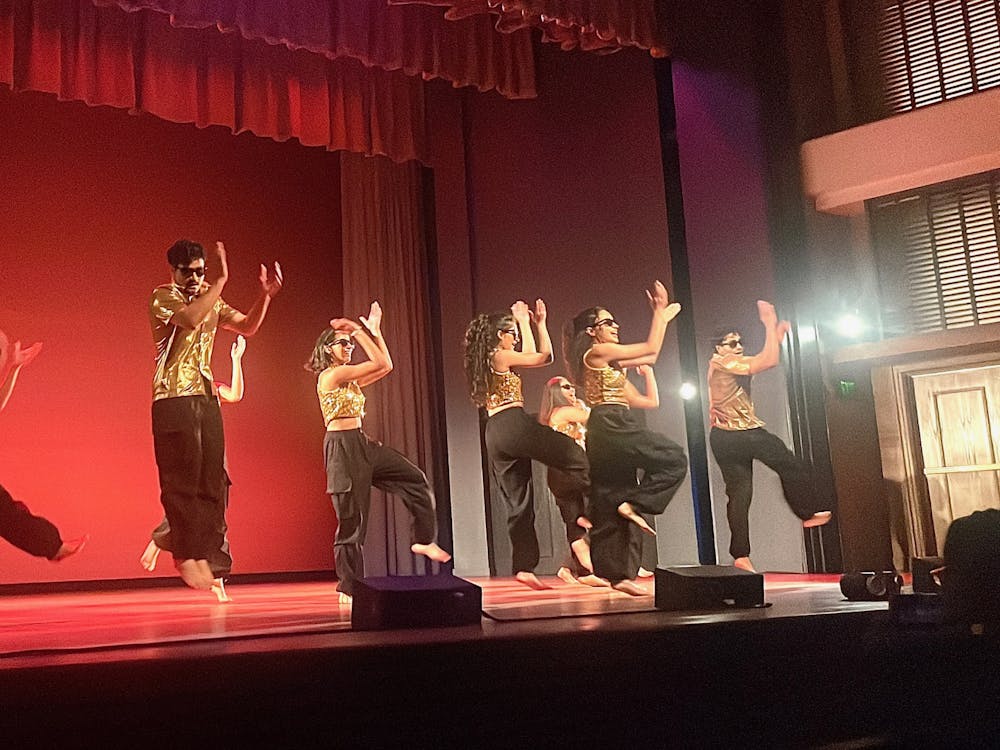The national Cultures and Language Across the Curriculum conference held at University of Richmond last week emphasized building a sustainable program that could accommodate growth, with a focus on funding and technology use.
The first shuttle transferring several conference attendees from the Omni Hotel to Richmond's campus arrived in front of Tyler Haynes Commons at approximately 11:20 a.m. Others arrived on their own by car.
Joe Hoff, associate dean of International Education, opened the conference with welcoming remarks at 1 p.m., followed by other speakers including Diana Davies, vice provost for international initiatives at Princeton University, and Uliana Gabara, former Richmond dean of international education.
The conference was divided into break-out sessions. Attendees were typically given three options to choose from, with each session offering insight on a different aspect of CLAC benefits. Breakout session topics included: New Initiatives in CLAC, How CLAC Can Benefit Existing Foreign Language Programs and Collaborative Models of Undergraduate Research in the CLAC Classroom.
"We see CLAC as a part of internationalization at the university," Hoff said. "I think that is what's coming out of this conference, which is focusing on how CLAC can be one of the tools to help students become global citizens by learning another language fluently or by learning cultural perspectives in their disciplined course. That is the focus of this year's conference."
The CLAC program allows students or faculty to attach a quarter-unit section in a target language to a regularly taught course. The program encourages the enhancement of language skills as well as cultural perspective in relevance to a specific discipline or course.
A student can opt to join a group discussion section that is taught by either a faculty member or an international student fluent in the target language, or complete an independent study project.
For example, a student who is studying accounting in Korean or Japanese, as well as a student studying environmental studies or geography in Spanish or Chinese, will study the content of the principal course focused on the region that language is spoken in and also learn the terminology in the target language, Hoff said. The idea is to gain perspective on how those target language groups view a particular topic in accounting or environmental studies.
CLAC consortium members normally run the CLAC conference. The consortium is a group of six to eight institutions that form the main basis of the CLAC movement. Not every university recognizes or uses this program. A significant number of the presenters were CLAC consortium members who were regular practitioners of CLAC, well-versed in applying the program in whatever form it may be.
Two pre-conference workshops were held, outlining CLAC program funding and technology to support such programs.
Sharon Scinicariello, director of the global studio, along with two others, delivered a presentation that highlighted the advantages of technology and obtaining valuable resources when applying CLAC.
"We are not talking about necessarily academic articles when it comes to resources," Scinicariello said. "We are talking about popular articles in disciplines, YouTube videos and television programs. These are really useful for people who are trying to expand their language skills."
Enjoy what you're reading?
Signup for our newsletter
She said that one of the things emphasized in this particular workshop was the multiplicity of tools available now to work with these authentic resources and how they can then be used in CLAC programs. The point of the workshop was to help attendees understand how to find resources and integrate them into the program.
"One thing I've noticed over time is that technology played very little part, I'd say, five years ago," Scinicariello said. "It's now a much more integral part of most programs and it's certainly beginning to overlap with all sorts of other internationalization efforts."
Demonstrating what the student has learned is essential to the language learning part of CLAC, she said. Technology is not used just as a tool or resource, but also as a way to document progress and demonstrate what students are doing through platforms such as blogging or creating wiki pages.
Hoff added that one thing he liked about how the CLAC program is implemented at Richmond was that if an international student were hired to run a section, it also puts him or her in touch with American students as well.
"It's not only just U.S. students learning cultural perspectives, but international students also learn what Americans think about these topics," he said. "So it's good all around. We have both domestic students and international students participating."
Contact reporter Sheetal Babu at sheetal.babu@richmond.edu
Support independent student media
You can make a tax-deductible donation by clicking the button below, which takes you to our secure PayPal account. The page is set up to receive contributions in whatever amount you designate. We look forward to using the money we raise to further our mission of providing honest and accurate information to students, faculty, staff, alumni and others in the general public.
Donate Now


